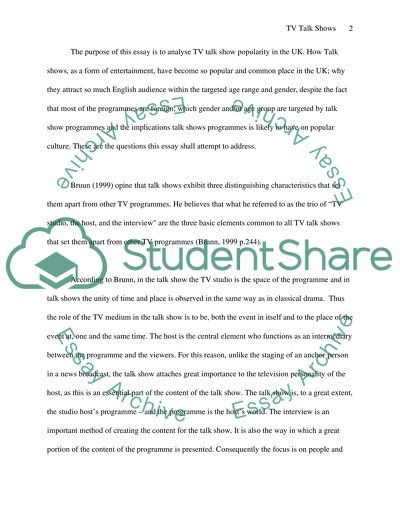Cite this document
(“TV Talk Shows Essay Example | Topics and Well Written Essays - 2000 words”, n.d.)
Retrieved from https://studentshare.org/sociology/1517883-tv-talk-shows
Retrieved from https://studentshare.org/sociology/1517883-tv-talk-shows
(TV Talk Shows Essay Example | Topics and Well Written Essays - 2000 Words)
https://studentshare.org/sociology/1517883-tv-talk-shows.
https://studentshare.org/sociology/1517883-tv-talk-shows.
“TV Talk Shows Essay Example | Topics and Well Written Essays - 2000 Words”, n.d. https://studentshare.org/sociology/1517883-tv-talk-shows.


